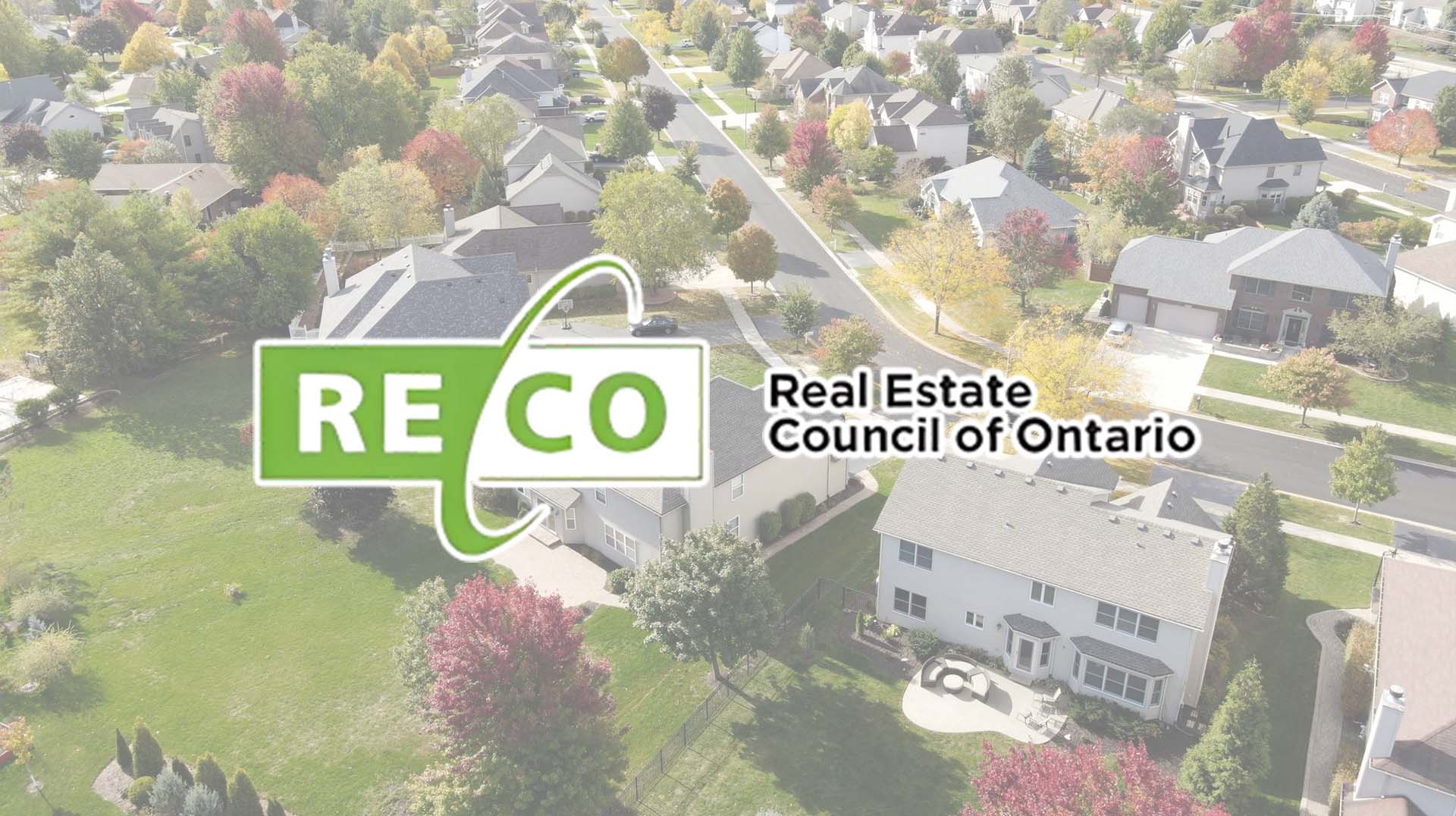What is Real Estate License?
What is Real Estate License? A real estate license is a critical and mandatory credential for individuals wishing to work as real estate agents, brokers, or salespeople in Ontario, Canada. It is an official authorization issued by the appropriate regulatory body to allow professionals to legally engage in real estate transactions.
A real estate license not only validates that an individual is qualified to offer services related to property sales, leasing, or management, but it also ensures that they are compliant with the legal and ethical standards set forth by the regulatory authorities.
In Ontario, this responsibility falls to the Real Estate Council of Ontario (RECO), which oversees the licensing and regulation of the real estate profession. It is essential for anyone interested in pursuing a career in real estate to understand the significance of obtaining a real estate license. Not only does it allow individuals to operate legally, but it also helps clients identify competent professionals who are dedicated to following established laws, industry best practices, and a strict code of ethics.

For those interested in becoming real estate professionals in Ontario, gaining a deep understanding of how the licensing process works and what it entails is crucial to ensuring a successful career in the industry.
Why is Real Estate License Important?
A real estate license is much more than just a credential; it serves as proof that an individual has met the necessary qualifications to represent clients in real estate transactions. Without this license, individuals cannot legally perform duties such as helping clients buy, sell, or lease properties. In Ontario, real estate professionals must comply with the Real Estate and Business Brokers Act, 2002 (REBBA 2002), which mandates licensing requirements to maintain the integrity of the industry and protect consumers.
There are several important reasons why having a real estate license is necessary:
1. Legal Authorization
The license grants permission to engage in real estate activities within the province, ensuring that professionals act within the bounds of the law. Only licensed individuals are authorized to receive compensation for their services in Ontario’s real estate market.
2. Consumer Protection
By requiring real estate professionals to be licensed, the public can rest assured that those representing them have the necessary knowledge and training to act in their best interests. In cases of disputes or unethical practices, clients can also file complaints with RECO, which investigates and enforces compliance.
3. Expertise
Obtaining a real estate license ensures that professionals possess a comprehensive understanding of the industry’s rules, regulations, and processes. This includes knowledge of real estate laws, ethical obligations, contracts, property management, and financing. Clients benefit from the expertise of licensed professionals who can handle complex transactions and navigate legal intricacies.
4. Professional Standards
Real estate agents are held to high ethical standards, as established by RECO’s Code of Ethics. Licensed agents must act in the best interests of their clients, disclose all necessary information, and treat all parties with fairness and respect. This protects consumers and ensures that the public receives a consistently high level of service.
5. Market Integrity
A licensed real estate professional contributes to the overall integrity of the market by adhering to ethical standards and maintaining a level of trust with the public. This helps stabilize the industry and fosters growth.
6. Career Development
For those pursuing a career in real estate, having a license opens doors to numerous opportunities. It enables individuals to work as independent professionals, run their own brokerage, or even specialize in a specific niche like commercial real estate. The license is the foundational step towards a long and rewarding career.
Understanding Real Estate Licensing in Ontario
In Ontario, the process of becoming a licensed real estate professional is governed by the Real Estate Council of Ontario (RECO). RECO is responsible for ensuring that all licensed real estate agents, brokers, and salespeople meet the required standards of education, ethics, and professionalism. In addition to issuing licenses, RECO plays a central role in setting industry regulations, providing educational resources, enforcing compliance, and offering consumer protection.
Ontario’s real estate industry is divided into several categories based on experience and specialization. The two most common types of licenses are for real estate salespersons and brokers. Below, we will outline the process and requirements for obtaining these licenses
Types of Real Estate Licenses in Ontario:
1. Salesperson License
The salesperson license is the entry-level credential for those seeking to enter the real estate profession in Ontario. Salespersons work under the supervision of licensed brokers and assist clients with buying, selling, and leasing residential or commercial properties. To obtain a salesperson license, you must complete the required educational program, pass the licensing exam, and register with RECO. This is often the first step in a real estate career, and many professionals begin as salespeople before progressing to a broker’s license.
2. Broker’s License
After gaining practical experience as a licensed salesperson (usually two years), professionals can opt to advance their career by applying for a broker’s license. A broker has more authority and responsibility than a salesperson. Brokers have the ability to open and manage their own real estate brokerage and can supervise other salespeople working under their license. Brokers are also authorized to handle more complex real estate transactions and are often involved in commercial real estate dealings or high-value residential properties.
3. Commercial Real Estate Designations
In addition to the general salesperson and broker licenses, there are also specialized commercial designations for professionals who wish to focus on commercial real estate transactions. While these certifications are not technically licenses, they demonstrate advanced expertise in commercial real estate. Examples of commercial designations include the Certified Commercial Investment Member (CCIM) and the Society of Industrial and Office Realtors (SIOR). These certifications require additional training, courses, and work experience, and they are typically pursued by those who already have extensive experience in the real estate sector.
The Licensing Process in Ontario
The licensing process for becoming a real estate agent in Ontario follows a structured series of steps designed to ensure that individuals have the knowledge, skills, and qualifications necessary to serve clients competently and professionally. Below is a step-by-step guide to obtaining a real estate license:
Step 1: Complete the Required Education
The first step in becoming a licensed real estate professional in Ontario is completing the necessary educational program. This program is offered by the Ontario Real Estate Association (OREA) in collaboration with RECO. The curriculum is designed to provide a solid foundation in key areas such as:
-
Real estate law and regulations
-
Property management and marketing
-
Ethics and professional conduct
-
Real estate financing and contracts
-
Residential and commercial property transactions
The education program typically consists of multiple courses that cover these essential topics, ensuring that prospective real estate agents are well-prepared to meet the demands of the job. This step is mandatory before moving forward with the exam.
Step 2: Pass the Licensing Exam
After completing the required courses, candidates must pass a licensing exam to demonstrate their understanding of the material. The exam consists of multiple-choice questions that assess knowledge of real estate principles, practices, laws, and ethics in Ontario. Achieving a passing grade on this exam is necessary to proceed to the next step.
If an individual does not pass the exam on their first attempt, they can retake it after a waiting period. Preparing thoroughly for the exam is essential, as it tests the candidate’s ability to apply their knowledge to real-world situations in real estate.
Step 3: Register with RECO
Once you pass the licensing exam, the next step is to register with RECO. This involves submitting an application, providing proof of your completed education and successful exam results, and paying the applicable registration fees. RECO will review your application and, if everything meets the requirements, issue your real estate license.
Upon approval, you will officially be registered as a real estate salesperson and are authorized to begin practicing in Ontario. At this point, you will typically need to work under the supervision of a licensed broker.
Step 4: Start Your Career
After obtaining your license, you are now ready to begin your career as a licensed real estate salesperson. You will be required to work under the supervision of a licensed broker, who will guide and support you as you engage in real estate transactions. Whether assisting clients in buying, selling, or leasing properties, you will be responsible for representing clients’ interests and ensuring that transactions are completed smoothly and efficiently.
As you gain experience and expand your network, you may choose to specialize in specific areas, such as residential, commercial, or luxury properties. Real estate is a dynamic field that offers a variety of career paths, and the skills you develop will be key to your success.
Step 5: Maintain Your License
Real estate professionals in Ontario must complete continuing education courses to maintain their licenses. Every two years, you are required to renew your license with RECO and complete mandatory education to ensure that you stay current on industry regulations, trends, and best practices.
Maintaining your license and continuing education ensures that you remain a knowledgeable and responsible professional, and it allows you to stay competitive in the ever-evolving real estate market.
Who Issues Real Estate Licenses in Ontario?
The Real Estate Council of Ontario (RECO) is the regulatory authority responsible for issuing real estate licenses in the province. RECO’s role extends beyond licensing; it also enforces compliance with the Real Estate and Business Brokers Act, 2002 (REBBA 2002) and maintains the ethical standards set forth in the Code of Ethics.
RECO plays a central role in ensuring that the public is protected by holding licensed professionals accountable. The council investigates complaints against real estate agents and brokers and can impose penalties, including fines, suspension, or revocation of licenses, for violations.

Conclusion
Becoming a licensed real estate professional in Ontario is the first step towards entering a rewarding and dynamic career. The licensing process is designed to ensure that all real estate agents, brokers, and salespeople possess the necessary skills, knowledge, and ethical standards to serve the public effectively.
Whether you are interested in working in residential or commercial real estate, obtaining your license is essential for practicing legally and professionally. By following the steps outlined by RECO and staying committed to continuing your education, you can build a successful career in Ontario’s competitive real estate market.
Unlock Your Future witha Real Estate License
Start Your Real Estate Journey in Ontario Today!
